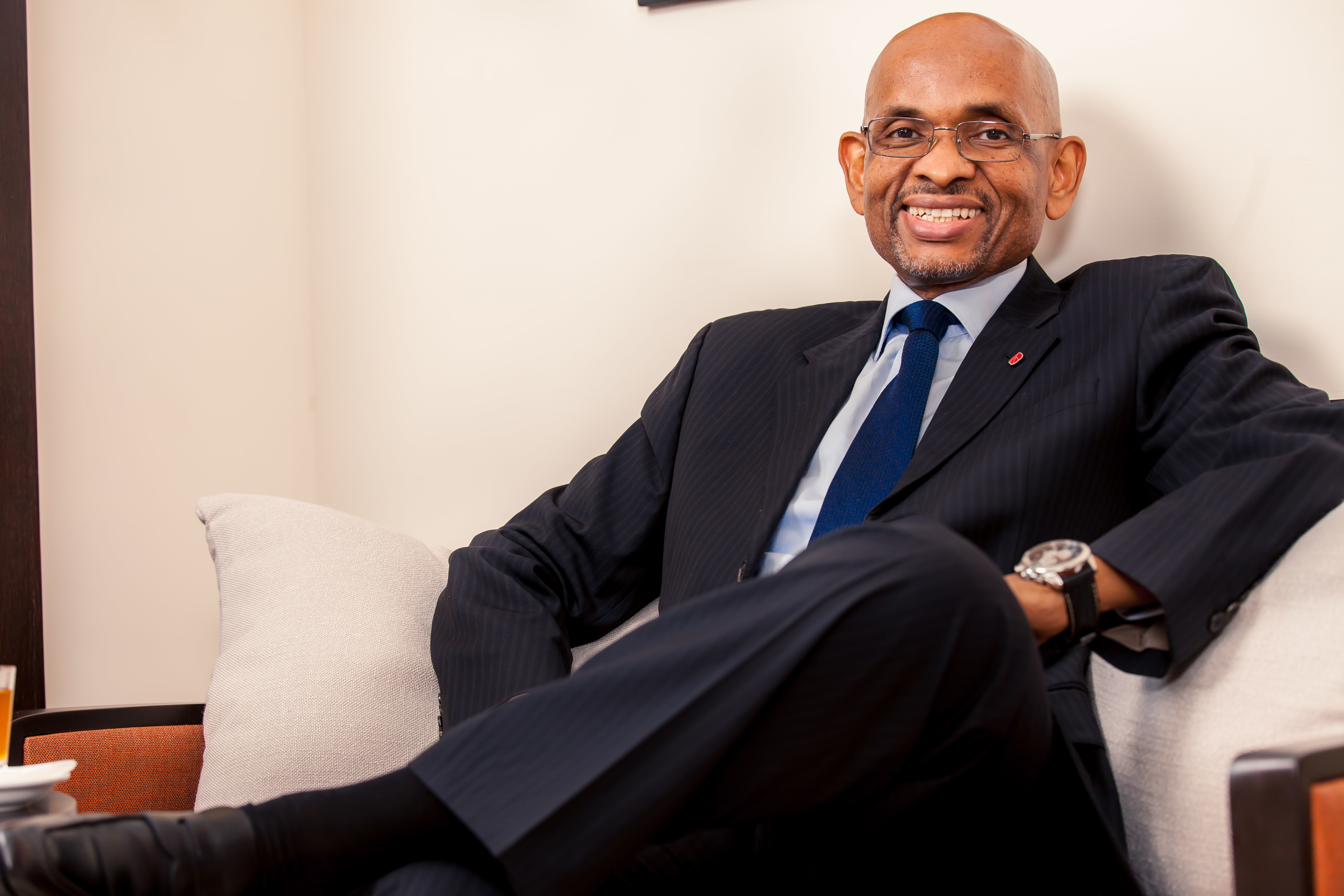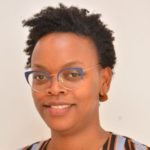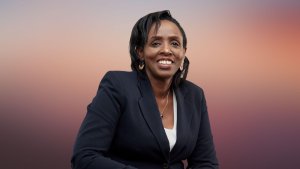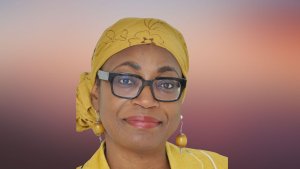Lire cette interview en français
Where were you at the start of the COVID-19 pandemic – in Bamako?
Yes, I had come back to Bamako on March 16th, after my last trip which was to check on progress with a new hotel site in Dakar. I didn’t leave Bamako again until August 10th. I hadn’t spent so much uninterrupted time in Bamako, for more than 30 years, when I started being a businessman.
With multiple businesses in the region, what is your assessment of the actions taken by governments to manage the crisis?
Overall, I have to admit there has been far more talk than action, particularly in the first weeks and months. A series of support plans were announced at the beginning which sounded fairly generous, but in practice they never saw the light of day. From a personal point of view, I felt pretty disappointed by government reactions. Our business is present in six West African countries, and in none of these have we received any help from the state, except for Benin, for which I am very grateful. One small boost we have obtained has come from some of our rooms being rented or requisitioned by government to house citizens returning to the country who needed to quarantine for some days. Apart from that, although we had asked for help in providing partial payment to many of our staff who we had to lay-off, for direct financial help, or for a suspension of tax payments, we received nothing of any kind. That’s why I feel disappointed not to have received any of the help one might have expected.
In the case of Mali, has greater support been given perhaps to small and medium sized enterprises (SMEs)? Perhaps it is thought that your business might be more resilient?
I don’t think that anything concrete in terms of help has been given to SMEs or the informal sector. So far as the banking sector is concerned in the West African Economic and Monetary Union (WAEMU) region, the Central Bank of West African States, decided to ask all commercial banks to give a three month holiday for interest payments on loans owed by businesses, which was renewed a second time, giving them a total of six months. In principle, this will have come to an end at the end of September, despite the pandemic still being present, and economic activity still at a low point. Will the Central Bank ask all banks to extend this interest rate holiday? We don’t know yet.
Have governments given more help to the poorest households, such as in the form of food aid ?
Yes, so far as social safety nets are concerned, in most countries these needs have been taken into account. In contrast to the business sector where words of support have greatly exceeded practical action, for social issues, most governments have done something: they have distributed food, and made money transfers through Mobile Banking systems.
What lockdown measures were taken in Bamako, was there a curfew?
We didn’t have a lockdown in Bamako. At the start, there was a night-time curfew which was more or less adhered to for a while, but there was nothing like the lockdown imposed in some African countries, and what we saw in Europe and the US. That’s for a simple reason, since in Africa it’s extremely difficult to impose a lockdown on people who need to seek out income and food on a day to day basis.
We’ve also seen, according to the figures available, that both case numbers and deaths from COVID-19 in Africa have been fairly low.
Yes, the deathrate seems extremely low in Africa, from what the statistics say. Take the case of Mali which has reported 3,000 cases and 125 deaths from COVID-19. You can see from this that the impact of the pandemic has above all been economic, rather than a health concern. While the impact on health has been kept low, the economic impact has, by contrast, been far more painful in Africa, because people have lost their jobs, cannot find work and have no income. Consequently, the situation is really difficult for many people in all our countries at the moment.
The tourist sector is amongst the worst affected by the Covid-19 crisis. How has it affected your business, the group Azalaï in particular? And what kind of measures have you taken to address this crisis?
When the world economy stops, that means there is no more travelling, so travel-related businesses are the first to be impacted. Tourism, hotels, airlines, road transport and everything associated with travel, transport and logistics – they all suffer. Every sector has been suffering from the pandemic, but these that I have just cited have been hit most immediately. Once the pandemic had arrived in our region, in mid-March, we shut the hotels, suspended all staff contracts, and then tried hard to manage all our costs. For example, we suspended lots of contracts for delivery of various services, for staff, for other goods. In this way, we tried to bring down our costs very substantially, because we had zero income, so we had to cut costs. We kept a very small core group of staff for maintenance of hotels and to ensure security, and we have a small team at head-quarters. From the end of July, and start of August, we re-opened the hotels, though business is very timid. But we thought it best to reopen and respond to new orders as they re-emerge. Little by little we hope that activity will re-grow. So, yes, indeed, our industry is really badly hit, and it’s a very difficult period for us.
Currently, we have some hotels with 5% occupancy, others at 20%. Above all, we’re trying to rely on local custom – such as conferences and seminars – but it’s very low key. And on top of the pandemic, in several countries there are major concerns about politics and security, such as in the case of Mali. Today, Mali is subject to an embargo[1], so the airport is shut to flights from the ECOWAS region, which handicaps us here since most of our customers are from this region. In the case of Côte d’Ivoire, there is now a heightened political risk due to the forthcoming elections and associated tensions. This kind of situation doesn’t encourage businesswomen and men to travel there to deal with important matters. For the last ten years, we’ve had security issues right across the Sahel zone, with added flashpoints here and there, and also we’ve had the last decade of political troubles in Guinea Bissau. Happily, today, that has come to an end, but now it is Côte d’Ivoire which is worrying us. Add the economic impact of the pandemic and that explains why we have almost no business. We have had to face up to all these difficulties, but we have a certain resilience thanks to the scale of the business and the fact that we’ve been operating for 26 years. If we make the right decisions during this period of crisis, I hope we will be amongst those still alive and operating when the pandemic has passed.
What should be the role of the private sector in economic recovery strategies? As a business, do you have a representative body working with other businesses in Mali to discuss a common strategy, or are you rather on your own?
We do have a number of professional bodies which represent us, such as the National Business Leaders’ Council, the Chamber of Commerce and Industry, and the network of West African Businesses. These organisations represent the private sector and speak to government and ministers on a regular basis. At the start of the pandemic, we offered proposals for how the state might help us during the crisis, of which some were taken up, and others rejected. Once we have left the pandemic crisis behind, and in the case of Mali, once a new government has been installed, we will re-establish this dialogue with government, to see with them how they can support all our businesses, since we have all been badly hit by the pandemic. We aim to have some influence with the decisions government takes, through the work of our business bodies.
How should African governments re-think their development strategies and models coming out of this crisis?
A country like Mali is above all founded on agro-pastoral assets and activities. I would like to see a massive investment in this sector, including agro-industry, because that’s where Mali’s wealth lies, rather than in mining. While it is true that we’re now the third largest exporter of gold in Africa, Mali would do better to grow its economy by making much better use of its farming and livestock activities. For this to happen you need certain things to be in place. The first is energy. Mali needs to call for PPP projects (Public-Private-Partnerships) to address the big gap between demand and supply of energy. Without energy, we cannot transform our agricultural raw materials, and we’ll always stay an exporter of wealth and importer of finished commodities, and hence an importer of inflation and of poverty. To stop this, we need abundant energy which is available at low prices.
The second essential step is to invest massively in human capital. In Mali today schooling has been completely “floored”. In the last three decades, the education system in Mali has been totally destroyed, despite it being one of the best in Africa earlier on, during the 1st and 2nd Republics. Sadly, the 3rd Republic completely sacked the school system, and we need now to reinvest massively in education. When I talk about schooling, I mean primary and secondary. I consider that all citizens should go to school for at least six years, preferably nine, in order to benefit from a really good education which is non-religious and free of fees for these nine years. To my mind, this is the minimum. After nine years we need to direct 90% say to further study in technical and professional training. Current and future jobs in Mali are fairly basic – we need electro-mechanics, project managers, computer scientists, livestock and agricultural technicians. These are the skills Mali needs. Only a small proportion say 5-10% have the intellectual capacity to go for longer academic studies to become administrators and officials. Even for this longer training period, we should be giving preference to STEM subjects (science, technology, engineering, mathematics) and less attention to literary subjects and humanities. Mali does not have enough job openings for the latter. This is the second fundamental thing to put in place.
The third is to have a strong state, which is visionary, looking long term, is willing to build and is able to carry out its essential tasks; that is to say the security of its frontiers, assurance for people to be able to travel about within the country without any fear, and proper distribution of law and justice. The state also needs a strong army to protect its frontiers, ensuring its members are well-trained, and have a justice system which does not allow for any impunity, with no “let-out” for powerful people. We can’t have a situation where the rich win and the poor lose all the time. The private sector can and must invest in education. If all three of these foundation stones are there - a visionary, effective state, an energy supply, and well-trained people, Mali could really make huge progress in less than a generation, becoming a middle income country, as has been seen in China. It is less than 40 years since they moved from being extremely poor to a more or less developed state today. Just forty years it has taken, having been launched by Deng Xiaoping in 1978.
How might young people find a greater sense of hope in current conditions? As a hotel-owner, what actions can you take to offer them work, or contracts for delivery of services?
The question of young people is crucial, perhaps the most crucial on the continent today. Africa needs to generate some 20-30 million jobs annually to keep up with the number of young people entering the jobs’ market each year. Let’s not forget either that by 2050, the total population of Africa is expected to have doubled. How might we ensure that this demographic growth brings a dividend, such as happened in China? By contrast, if we do nothing it could become a bomb which explodes in our hands. It takes us back to the previous question – we need an effective state, which has a long-term vision, offers justice, is able to construct for the future, and which is not corrupt. We can’t be led by corrupt and incompetent people. You can put in place however many programmes to support youth, but if you have leaders who keep all the power in the hands of a tiny group, add to this their corruption and incompetence, and none of the benefits will reach youth. Everything begins with good governance.
Young people above all are entrepreneurial at heart. They really want to get themselves moving, and they understand perfectly well that the state will never be able to create enough employment for them, so they have to take their future in their own hands. I am always hugely impressed when I meet young people, as regards their dynamism, their desire to get things done and to make something of themselves, but they rarely receive any help. The largest hurdle they face is access to funds. If we want their business activities to lead somewhere, they need some form of financial mechanism. In the US for example, the Small Business Administration offers seed capital to young entrepreneurs, to get them going. They may only need EUR2,000 or 2500 – it’s not a lot to get started, but they cannot find this small sum partly because the banks won’t consider lending such small amounts.
I belong to a business leaders’ organisation called the West African Business Network. We are putting in place a Business Angels programme (in this case the Mali Business Angels) with the aim of providing youth with the coaching, mentoring, training and management expertise that will help them at the start. Of the ten young people we help, they won’t all be successful business-owners but if 2 to 4 of them succeed, each one may generate 10, 15 or 20 jobs, so that has a snow-ball effect. Sadly, there are many countries where such a programme does not exist, which can only discourage our youth. That is one of the reasons why many prefer to take their chances with migration, as they cannot see a future for themselves at home. Whenever such programmes get put in place, we must make sure that they’re involved in designing of how the programme works, as it’s them above all who will be the users or consumers of the programme. Too often we don’t listen to what they think or say, but we just go ahead and design a programme without considering how it might work to meet their needs. I would prefer that this kind of programme be lodged in a non-state body, as government structures are often too bureaucratic and subject to funds being diverted for other purposes. Rather, let’s set up ad-hoc structures which can be staffed by young business leaders, managed in a private sector fashion, with an open call for recruitment of the managing agency.
Let’s move onto the current political situation in Mali: there is now a transitional President, and a process of reflection is underway involving Malian women and men to consider amendments to the constitution. Tell us where you are with this process?
Yes, indeed, a group of Malian citizens from different backgrounds and professions has decided to step forward, and not hang back anymore. Up till now, many of us had been pursuing our careers without saying too much. But now we have started meeting on a regular basis each Saturday to discuss the many problems we all face. We are asking ourselves what is the future we want to see and how do we re-build the institutional architecture of our country to enable the 4th Republic to emerge? At present, an 18-month transitional period has been proposed and agreed by ECOWAS. Over the course of these 18 months, I don’t think we’ll be able to achieve a lot, but we hope at least to revise the Constitution, the Electoral Code, and the Charter regulating the activities of political parties. We have for example more than 200 political parties in Mali – it’s simply not possible! And we must also prepare for elections, and that means getting agreement from political parties, civil society, to put in place a timetable.
What might be essential elements in a new Constitution? Is the devolution of powers a necessary part?
I think that any Malian who looks back over the last 60 years since Independence, during which we’ve had four coups d’état, and three rebellions in the north of the country, knows that these are the result of a lack of effective government, a non-governance, and a hyper-concentration of power in the hands of very few, based in Bamako. One of the paths we must travel is to see how we can really shift power away from the capital and move towards local government which will be elected by local people and be accountable to them. If you’re in Bamako, how can you be accountable to someone in Gao which is 1200km away, or Kayes which is a distance of 600km? It is impossible and an illusion to think you can manage development in Nara when you’re sitting in Bamako. There are lots of options for decentralised government: from a very grassroots system, a regional approach, or a form of federal government as you find in Nigeria, the US, Australia and Germany, in fact in many parts of the world. We need to bring centres of decision-making close to the people, in order to ensure that the interests and priorities of ordinary people are taken into account.
[1] Lifted on October 6th following the installation of a civilian-led government.








